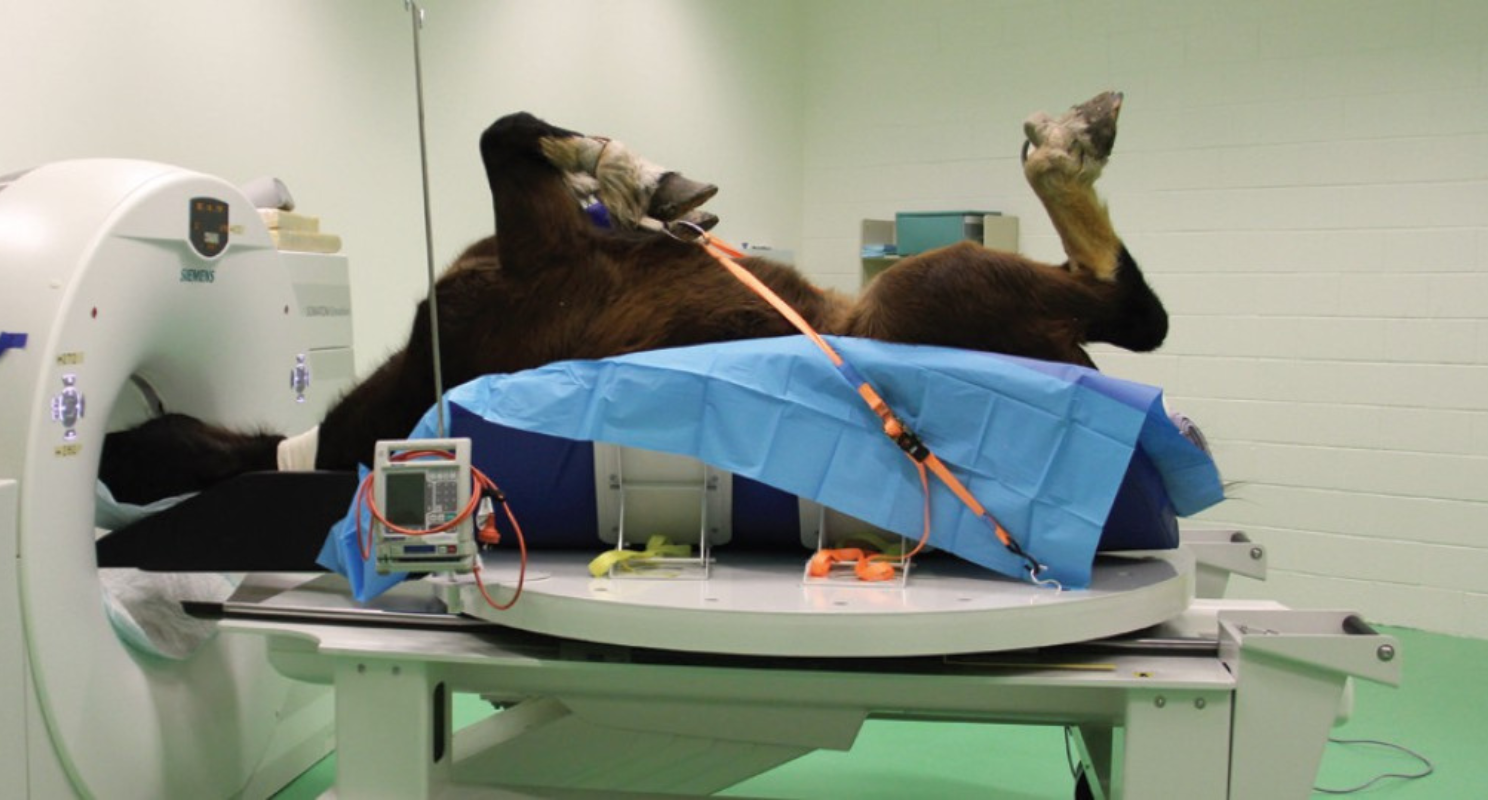Back to employers
Science, Technology & Analytics
Are you curious about how science and technology shape our world? Then it might be time to take a deeper look at careers in science! This future-focused industry features an exciting mix of innovation, research, data, and discovery that’s transforming everything from medicine to space exploration. So, if you enjoy experimenting, solving puzzles, or diving into data, then science technology careers could be your perfect fit.
The best bit? There are tonnes of science-related jobs to explore right here in Australia! From biotechnology and AI to environmental science and analytics, job opportunities are booming. In this page, we’ll explore the connection between science and careers, jobs related to science, and average salaries across different scientific industry jobs. If you see a future in this industry, you’re in the right place!

So, What is the Science, Technology, and Analytics Industry?
The science, technology & analytics industry brings together research, experimentation, computing, and data analysis to help solve some of the world’s biggest challenges. Whether it’s creating a new vaccine, predicting climate patterns, or developing cutting-edge artificial intelligence, this industry thrives on asking questions, and finding smart, practical answers.
As you might expect, this industry is made up of three key areas:
- Science: Exploring the natural world through research and experimentation in fields like biology, chemistry, physics, and environmental science.
- Technology: Designing and building new systems, software, and tools to power innovation and modern living.
- Analytics: Using data to uncover patterns, solve problems, and inform decisions across business, government, healthcare, and more.
Together, these fields encompass important careers that are high-impact, future-focused, and fullof opportunity.
What Kind of Careers Exist in the Science, Technology & Analytics Industry?
If you’re wondering what sort of jobs fall under this umbrella, you’re in luck; there are tons of exciting and diverse science and technology-based roles in Australia! Here’s a small taste of what’s out there:
- Geneticist
- Software Developer
- Climate Scientist
- Data Analyst
- Laboratory Technician
- Space Engineer
And that’s just scratching the surface. Whether you want to dive deep into scientific research or build tech that changes lives, there’s a role out there that suits your skills, passions, and curiosity.
What You Could Do
If you’re thinking the science, technology & analytics industry is all about lab coats and test tubes, think again! This field is packed with variety, creativity, and world-changing innovation. Whether you’re passionate about solving climate change, creating new tech, or uncovering medical breakthroughs, there’s an analytics, technology, or science-related job for you.
Below, we’ve highlighted just a few of the incredible paths you could take in this industry. And these aren’t just careers; they’re opportunities to be at the forefront of discovery and change.

Geneticist
Geneticist Average Salary: $90,000 – $140,000
If you’re fascinated by DNA, heredity, and the building blocks of life, a career as a geneticist might be for you. Those working in this science-related job study genes to understand how traits are passed down through generations and how genetic changes can lead to disease. You might work in a lab researching rare genetic disorders, support IVF clinics, help develop new medications, or even contribute to food and crop improvement in agriculture!
Why it’s cool: You’re literally decoding life and helping people in the process! It’s one of the most exciting careers in science on offer.
Software Developer
Software Developer Average Salary: $85,000 – $105,000
Into coding, building things from scratch, or just obsessed with tech? Software developers are the creative force behind all the apps, games, programs, and systems we use every day. In this science and technology career, you’ll design, build, test, and maintain software across tonnes of different (and very exciting industries).
Why it’s cool: You can work anywhere, build anything, and your creations could go global. It’s a fast-moving and high-demand science technology career.
Climate Scientist
Climate Scientist Average Salary: $95,000 – $100,000
Climate scientists study how the Earth’s climate works, covering how it’s changing, and what we can do about it for environmental preservation. You’ll use tools like computer models, satellite data, and long-term weather records to predict future trends and inform government and industry decisions. It’s important stuff! Many science-related jobs in this area help tackle one of the biggest global challenges of our time; climate change.
Why it’s cool: You get to combine science, data, and activism to make a real difference for the planet and future generations.
Laboratory Technician
Laboratory Technician Average Salary: $70,000 – $85,000
Those working as Lab Technicians occupy one of the most important careers in science, as they support so much of the work being done across the industry. You could work in a variety of labs, including medical, pharmaceutical, environmental, and food safety, to help scientists set up experiments, manage equipment, and analyse results. This is a great hands-on job if you love working with tools, being detail-oriented, and playing a critical part in new discoveries.
Why it’s cool: You’re right in the middle of the action, helping scientists develop life-changing innovations in real time.
Space Engineer
Space Engineer Average Salary: $80,000 – $100,000
Yes, careers in science can literally launch you into space (well, sort of). Space engineers work on the design, construction, and testing of spacecraft, satellites, and space stations. You’ll work with cutting-edge tech and collaborate with scientists, mathematicians, and programmers on projects that could change how we explore the universe.
Why it’s cool: From rockets to rovers, your work might one day end up on the Moon, Mars, or beyond. It’s the ultimate science and technology career.
Biomedical Engineer
Biomedical Engineer Average Salary: $70,000 – $80,000
Combine engineering smarts with medical science, and you’ve got biomedical engineering; a high-impact science and career path that improves people’s health and lives. You might help design artificial organs, build advanced prosthetics, or develop new diagnostic machines used in hospitals and research labs.
Why it’s cool: You get to invent life-saving devices and change healthcare from the inside out.
Microbiologist
Microbiologist Average Salary: $75,000 – $95,000
Microbiologists study microscopic organisms like bacteria, viruses, fungi, and algae, to understand how they live, grow, and affect other life forms. Your work could contribute to vaccines, environmental clean-ups, or even food safety. This is one of the most essential, behind-the-scenes scientific industry jobs today.
Why it’s cool: You’ll work in labs solving problems most people can’t even see, and your findings can protect millions.
Want to get even more career inspo? Check out these 5 cool jobs you can pursue in science!
Insights into the Science, Technology & Analytics Industry
If you’re considering pursuing one of the many exciting science and technology careers out there, it’s helpful to understand the trends behind them. From industry growth to who’s entering the field, let’s dive into what powers the scientific industry jobs landscape.
Industry Growth
Employment across the Professional, Scientific and Technical Services sector is expanding fast. Jobs and Skills Australia projects an overall growth of 10.9% by 2029 and 20.9% by 2034, and a lot of that is tied to science, tech, and analytics professions.
In the tech subsector specifically, jobs increased by 8% year-on-year, with expectations to reach over 1.2 million roles by 2027. That’s hundreds of thousands of opportunities for tech roles and other jobs related to science!
Gender Split
With women making up 52% of science enrolments and 48% of mathematics enrolments in the final year of school, it’s safe to say that the future of careers in science and math is looking promising! The best part? This translates to the workforce, too!
According to Jobs and Skills Australia, 43% of the Professional, Scientific and Technical Services industry is made up of women; talk about girl power! To keep this momentum going, many employers are launching exciting new programs to encourage women to join the industry!

Average Salary for Science, Technology & Analytics Jobs
If you’re considering a career in science, technology, or analytics, you’re in luck! There are plenty of high-paying (and super rewarding) roles in the sector, regardless of what kind of role you’re looking for.
Geneticist Average Salary: $90,000 – $140,000
Software Developer Average Salary: $85,000 – $105,000
Climate Scientist Average Salary: $95,000 – $100,000
Laboratory Technician Average Salary: $70,000 – $85,000
Space Engineer Average Salary: $80,000 – $100,000
Biomedical Engineer Average Salary: $70,000 – $80,000
Microbiologist Average Salary: $75,000 – $95,000
Entry-level positions tend to start at the lower end, typically between $60,000 and $80,000. With experience, specialisation, and leadership roles, salaries can reach well into the six figures. Salary levels depend on factors like sector (public vs. private), employer size, location (urban vs. regional), and specialisation.

Qualifications and Entry Pathways
If you’re dreaming about careers in science or technology, you’re probably wondering: How do I actually get started? The good news? There’s more than one way to break into the exciting world of science and technology in Australia, and you don’t always need to take the same path as everyone else.
Whether you’re aiming for a lab coat and safety goggles, coding AI systems, analysing climate change, or crunching data behind the scenes, there’s a qualification to help you get there. Some students dive into a Bachelor of Science at university, while others take hands-on pathways like diplomas, traineeships, or micro-credentials to launch their science-related job journey.
From traditional university degrees to flexible alternative pathways, this section will help you map out how to get the right skills, experience, and qualifications to unlock careers in science. Let’s break it down.

Science, Technology, and Analytics Degrees
Most roles in science, tech, and analytics require formal tertiary study, but the options are limitless! Find your perfect fit in fields such as:
Best Places to Study
Lucky for you, Australia offers world-class institutions in science, analytics, and technology. Top choices include:
Pro tip: Check if courses are accredited by industry bodies like ACS, Engineers Australia, or Australian Mathematical Society to improve career outcomes.
Alternative Science, Technology & Analytics Pathways
There are also non-university routes that build practical experience and lead into careers in science, technology and analytics:
These pathways are ideal for anyone who prefers hands‑on learning and flexible study (or if you don’t want to commit to a long degree quite yet).
Top Skills You’ll Need
If you’re keen on technology or science-related jobs, you might be wondering what kind of skills you actually need to succeed?
While qualifications are super important (and we’ve covered those!), employers in the analytics, technology, or scientific industries are also on the lookout for people with the right mix of practical know-how, critical thinking, and creative problem-solving. Whether you’re decoding DNA, designing smarter cities, programming AI, or analysing climate data, it’s the combo of hard and soft skills that will help you stand out.
And the best part? These skills aren’t just useful in one role; they’re transferable across a ton of jobs related to science, technology, and analytics. That means you’ll be future-ready, no matter where your journey takes you.

Analytical Thinking
Across all careers in science, analytics, and technology, analytical thinking is a must-have. You’ll often need to break down complex problems, spot trends in data, and make evidence-based decisions, whether you’re analysing climate models or testing hypotheses in a lab.
Digital Literacy
The science and technology industry in Australia is powered by digital tools. Knowing your way around data software, lab equipment, coding languages, or AI platforms can set you apart and open up endless possibilities in science and technology careers.
Attention to Detail
Precision matters in the scientific industry; small mistakes can lead to big consequences. Whether you’re logging results from an experiment or writing code for a new app, having sharp attention to detail ensures accuracy and reliability in everything you do.
Communication Skills
Being a great scientist or tech expert isn’t just about what you know; it’s about how well you can explain it. Communication is key in science-related jobs, especially when sharing results, working with teams, or pitching innovative solutions to non-experts.
Teamwork & Collaboration
Most exciting breakthroughs happen through teamwork. In many jobs related to science, analytics, and technology, you’ll collaborate with other scientists, engineers, analysts, or even creatives, so being a strong team player is essential for success.
Problem-Solving
From curing diseases to developing eco-friendly tech, careers in science are all about solving real-world problems. Being curious, adaptable, and resourceful will help you overcome challenges and think outside the box in high-pressure situations.
Time Management
Deadlines are everywhere in science and technology careers, whether it’s a research project, coding sprint, or product launch. Being able to manage your time effectively helps you stay productive and meet goals without burning out.
Adaptability
Science and tech are constantly evolving fields, with new discoveries and tools emerging all the time. To thrive in this space, you’ll need to be flexible and ready to learn new skills throughout your entire analytics, technology or science career journey.
Where to Learn More
Curious about where a future in science and technology careers could take you? Great news; there are so many ways to explore more and build your confidence about taking that next step. From professional associations to online resources and career expos, there’s a world of information out there to help you dive deeper into analytics, technology, and science-related jobs and the broad opportunities in these exciting industries!
Checking out reliable sources, talking to industry mentors, and joining student programs can help you see what it’s really like to work in jobs related to science, while also giving you a head start on valuable skills and networks. Whether you want to discover emerging tech trends, learn more about university options, or get hands-on through work experience, there’s no shortage of resources to support your goals in science and technology in Australia.
Ready to keep exploring? Here’s where to start!
- CSIRO (Commonwealth Scientific and Industrial Research Organisation)
- Careers with STEM
- Science & Technology Australia (STA)
- Australian Academy of Science

A Day in the Life of a Veterinary Radiographer
Build your dream animal career by becoming a veterinary radiographer; ASMIRT breaks down what the role involves and why you’ll love it!
Explore

5 Cool Jobs You Can Pursue in Science
Celebrate careers in science! Discover super-cool medical professions and unlock science career inspiration with Healius pathology.
Explore











